
Nijmegen: The Ancient Heart of the Netherlands
Nijmegen, the oldest city in the Netherlands, is a treasure trove of history and culture. Nestled along the Waal River, this city offers a unique blend of ancient charm and modern vibrancy. From its Roman roots to its medieval architecture, Nijmegen is a place where the past meets the present. Stroll through the historical center and discover centuries-old landmarks like Saint Stevenskerk and the Valkhof Museum. The city’s rich history is visible in its well-preserved structures and fascinating museums, making it an ideal destination for history buffs. The lively Grote Markt square is a hub of activity, with bustling cafes and shops that provide a taste of local life. Nature lovers will enjoy the city's green spaces, such as the lush Kronenburgerpark and the serene Ooijpolder, perfect for cycling and hiking. The annual Four Days Marches, the world’s largest walking event, attracts thousands of participants and spectators each year. Nijmegen also boasts a vibrant cultural scene with numerous festivals, theaters, and music venues, ensuring there is always something happening in this dynamic city. Whether you're exploring its historical sites, enjoying its beautiful parks, or immersing yourself in its cultural offerings, Nijmegen promises an unforgettable experience.
Local tips in Nijmegen
- Visit the Valkhof Museum to learn about Nijmegen's Roman past.
- Take a walk or bike ride through the scenic Ooijpolder nature reserve.
- Explore the historic Grote Markt for local cuisine and shopping.
- Attend the Four Days Marches in July to experience a unique local tradition.
- Relax in Kronenburgerpark, a beautiful green oasis in the city.
Nijmegen: The Ancient Heart of the Netherlands
Nijmegen, the oldest city in the Netherlands, is a treasure trove of history and culture. Nestled along the Waal River, this city offers a unique blend of ancient charm and modern vibrancy. From its Roman roots to its medieval architecture, Nijmegen is a place where the past meets the present. Stroll through the historical center and discover centuries-old landmarks like Saint Stevenskerk and the Valkhof Museum. The city’s rich history is visible in its well-preserved structures and fascinating museums, making it an ideal destination for history buffs. The lively Grote Markt square is a hub of activity, with bustling cafes and shops that provide a taste of local life. Nature lovers will enjoy the city's green spaces, such as the lush Kronenburgerpark and the serene Ooijpolder, perfect for cycling and hiking. The annual Four Days Marches, the world’s largest walking event, attracts thousands of participants and spectators each year. Nijmegen also boasts a vibrant cultural scene with numerous festivals, theaters, and music venues, ensuring there is always something happening in this dynamic city. Whether you're exploring its historical sites, enjoying its beautiful parks, or immersing yourself in its cultural offerings, Nijmegen promises an unforgettable experience.
When is the best time to go to Nijmegen?
Iconic landmarks you can’t miss
Kronenburgerpark
Explore the lush beauty and historic charm of Kronenburgerpark in Nijmegen, a serene escape for tourists seeking relaxation and outdoor enjoyment.
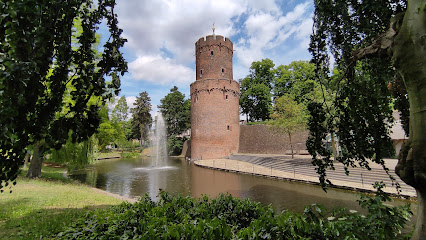
Valkhof Museum
Discover the rich tapestry of art and history at the Valkhof Museum, a cultural gem in Nijmegen, Netherlands.
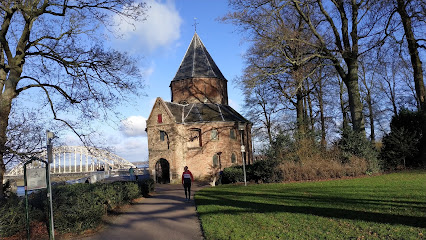
Saint Stephen's Church, Nijmegen
Explore the grandeur of Saint Stephen's Church in Nijmegen, a historical gem offering stunning architecture and vibrant cultural events.
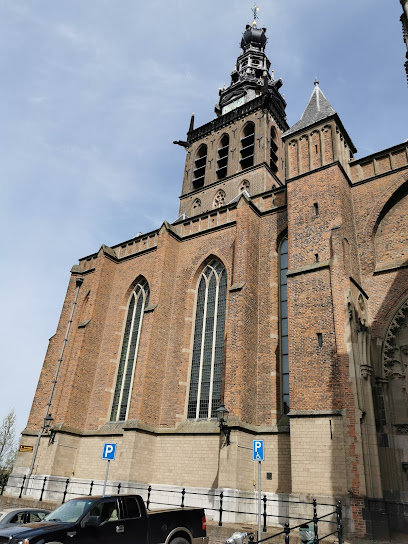
Valkhof Park
Explore Valkhof Park, a lush and historic park in Nijmegen featuring Roman ruins and stunning river views, perfect for all tourists seeking tranquility.
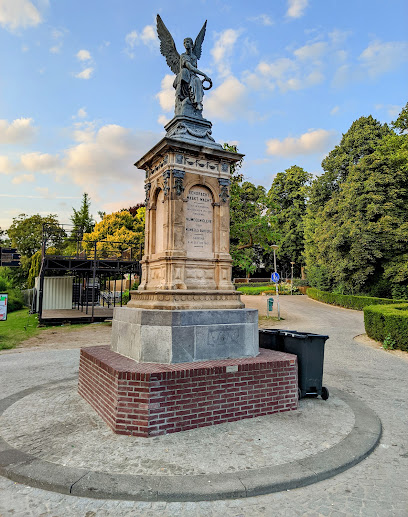
Hunnerpark
Explore the lush landscapes and historical charm of Hunnerpark in Nijmegen, a perfect retreat for nature lovers and city explorers.
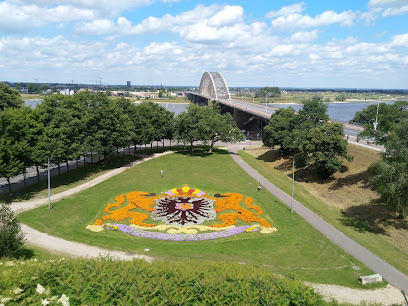
muZIEum
Explore the unique insights of muZIEum in Nijmegen, where you’ll gain a deeper understanding of visual impairment through immersive experiences.
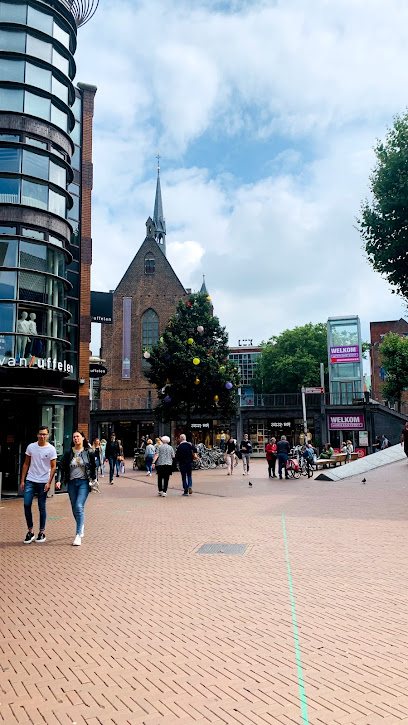
De Bastei
Explore the fascinating heritage of Nijmegen at De Bastei, a museum that beautifully intertwines history, culture, and stunning views of the Waal River.
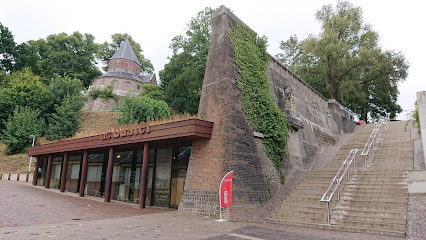
Goffertpark
Discover the lush beauty and vibrant atmosphere of Goffertpark, Nijmegen's beloved urban park, perfect for relaxation and community events.
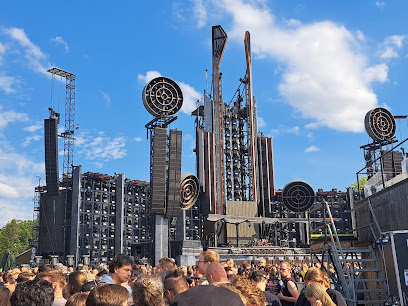
De Waagh
Discover De Waagh in Nijmegen - a perfect blend of history, modern dining, and local culture, ideal for tourists seeking authentic Dutch experiences.
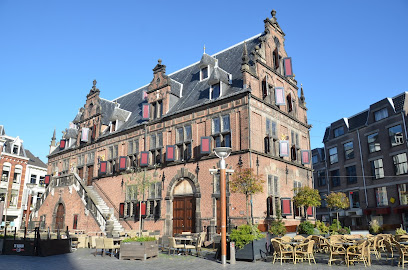
Waalbrug
Discover the stunning Waalbrug in Nijmegen, a breathtaking bridge that beautifully connects the city's rich history with its vibrant present.
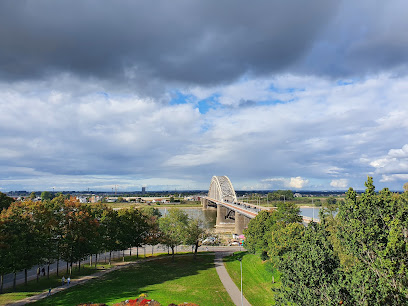
Foundation Hortus Nijmegen
Discover the enchanting Foundation Hortus Nijmegen, a botanical garden and tea house in the heart of Nijmegen, perfect for nature lovers and tranquil escapes.
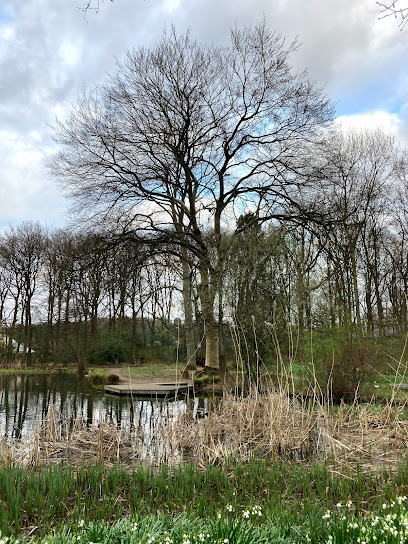
Nationaal Fietsmuseum Velorama
Explore the rich history of cycling at the National Bicycle Museum Velorama in Nijmegen, showcasing a diverse collection of bicycles and interactive exhibits.
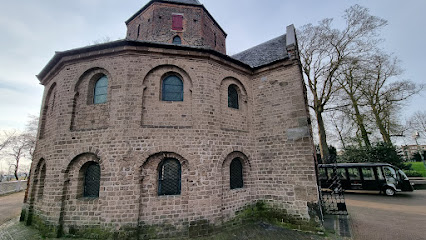
Places.nl
Explore the intersection of tradition and innovation in Nijmegen with a visit to a leading Internet marketing service that shapes the local economy.
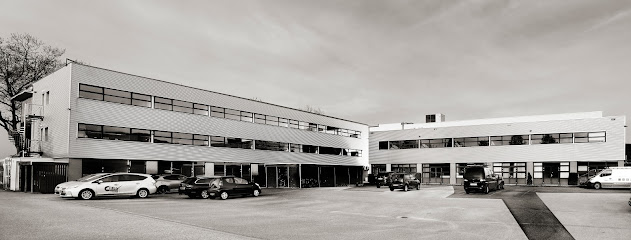
Het gezicht van Nijmegen
Experience the charm of Nijmegen at Het Gezicht van Nijmegen, where cultural richness meets scenic beauty in this historic Dutch city.
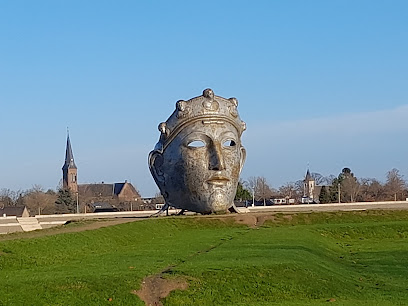
Museum Van Lymborch Brothers House
Discover the artistic heritage of the Van Lymborch brothers at this unique museum in Nijmegen, showcasing history, art, and culture in one captivating location.
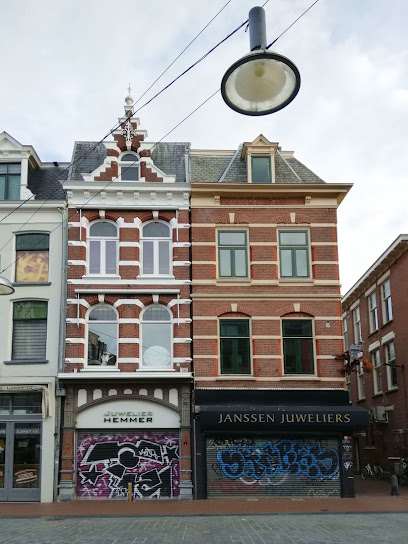
Unmissable attractions to see
Het Nationale Park De Hoge Veluwe
Explore the breathtaking landscapes and rich art heritage of Het Nationale Park De Hoge Veluwe, a perfect blend of nature and culture in the Netherlands.
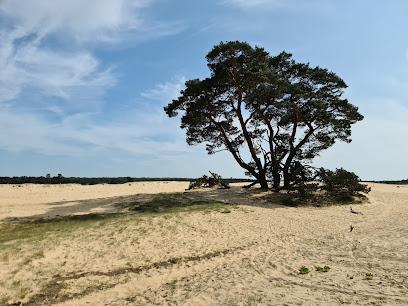
Kröller-Müller Museum
Discover the Kröller-Müller Museum: A cultural haven with Van Gogh masterpieces and stunning nature in the heart of the Netherlands.
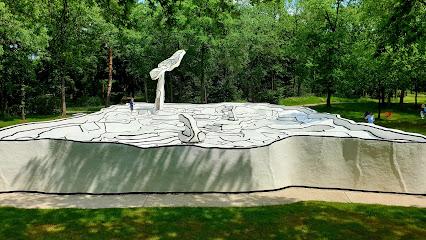
Park Sonsbeek
Explore the natural beauty and cultural treasures of Park Sonsbeek, a serene urban park in Arnhem perfect for relaxation and recreation.
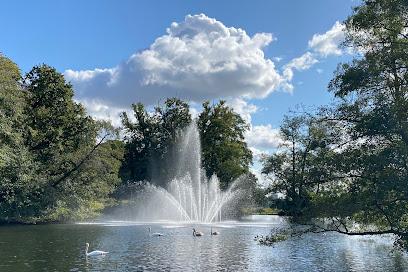
St John's Cathedral
Explore St John's Cathedral, a Gothic masterpiece in 's-Hertogenbosch, showcasing stunning architecture and rich cultural history.
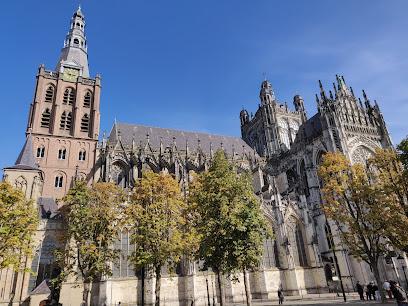
Julianatoren Apeldoorn
Discover the enchantment of Julianatoren Apeldoorn, a family-friendly theme park filled with thrilling rides, fun attractions, and unforgettable experiences.
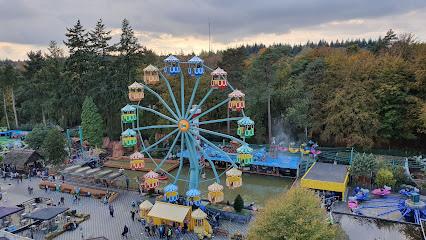
Paleis Het Loo
Explore the majestic Paleis Het Loo, a royal palace in Apeldoorn, showcasing stunning gardens and rich Dutch history.
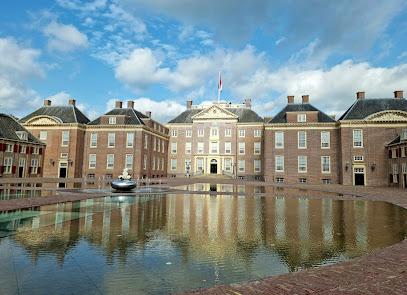
Airbornemuseum Hartenstein
Explore the Airborne Museum Hartenstein in Oosterbeek, where history comes alive through immersive exhibits and powerful stories of valor during WWII.
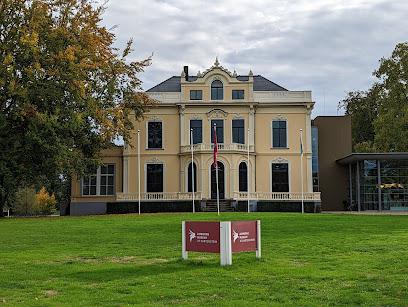
Kronenburgerpark
Discover the charm of Kronenburgerpark in Nijmegen, where history meets tranquility in a beautiful park setting.
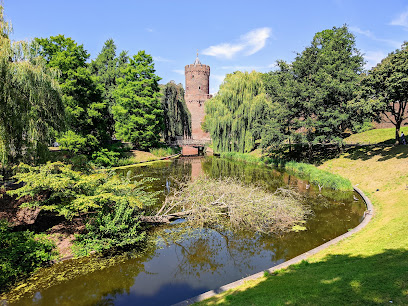
Noordbrabants Museum
Explore the rich artistic heritage of North Brabant at Noordbrabants Museum in 's-Hertogenbosch, showcasing masterpieces from past to present.
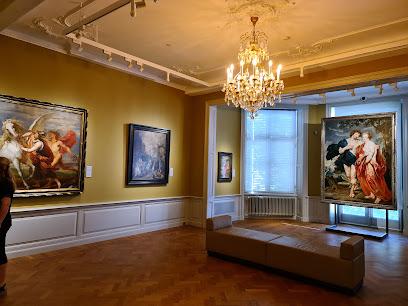
Heeswijk Castle
Discover the historical charm and stunning architecture of Heeswijk Castle, a captivating destination for history enthusiasts and families in the Netherlands.
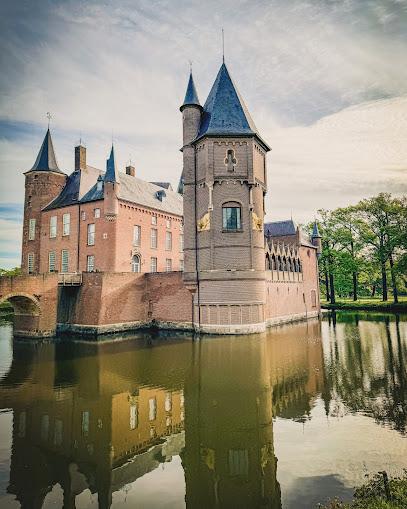
Park Berg en Bos
Explore the natural beauty of Park Berg en Bos in Apeldoorn, a serene destination for outdoor enthusiasts and nature lovers.
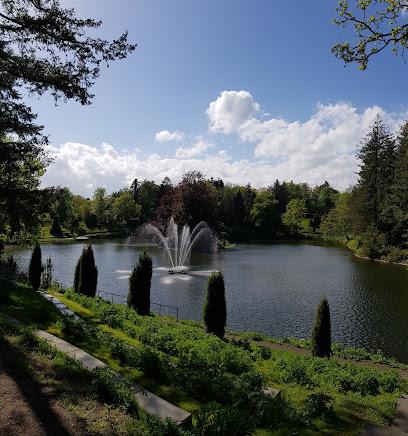
Nationaal Monument Kamp Vught
Explore Nationaal Monument Kamp Vught, a significant museum honoring the history of the Vught concentration camp and the resilience of its prisoners.
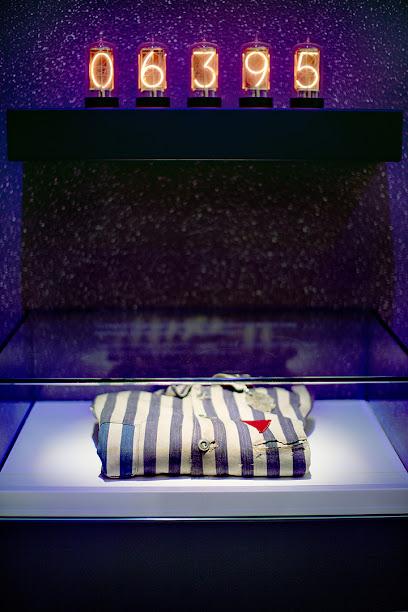
John Frost Bridge
Experience the historical significance and stunning views of the John Frost Bridge, a landmark in Arnhem, Netherlands.
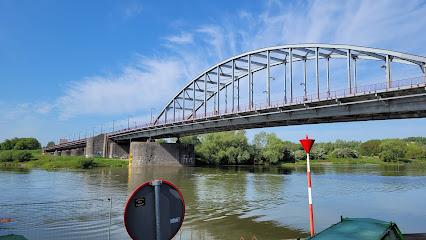
Foundation Eusebius Arnhem
Explore the enchanting Eusebius Arnhem, a cultural landmark blending spirituality and history in the heart of the city.

Country Residence Museum Jachthuis Sint Hubertus
Discover the architectural beauty and historical richness of Jachthuis Sint Hubertus in Hoge Veluwe National Park, a true gem for culture and nature lovers.
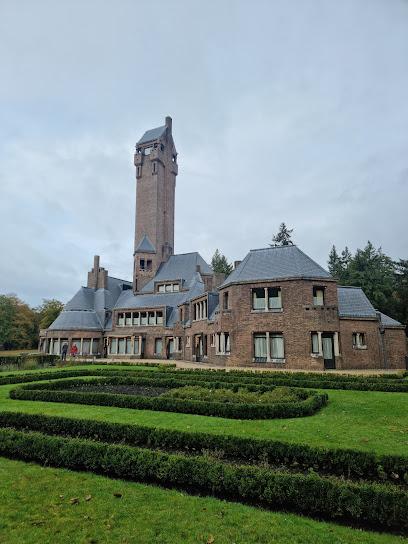
Essential places to dine
Restaurant Arsenaal 1824
Discover the culinary artistry of Restaurant Arsenaal 1824 in Nijmegen - where French elegance meets Mediterranean flair.
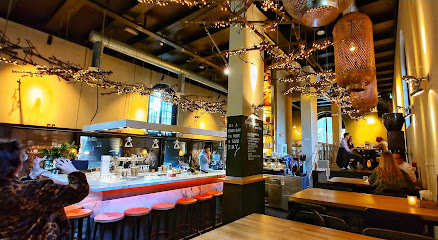
Loetje Nijmegen
Discover culinary delights at Loetje Nijmegen – where exceptional steaks meet inviting atmosphere in the heart of this historic city.
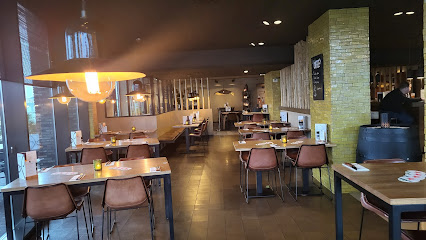
Restaurant Wally
Experience culinary delight at Restaurant Wally in Nijmegen - where unique burger recipes meet cozy dining.
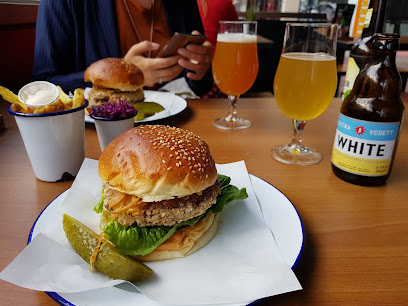
Bleeckerstreet
Experience modern European dining with Asian fusion delights at Bleeckerstreet - a culinary gem in the heart of Nijmegen.
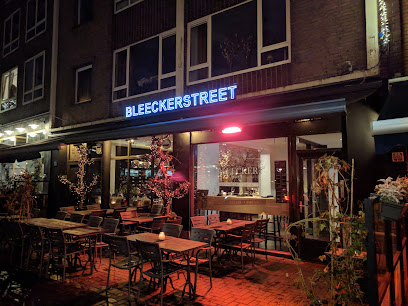
Mr. Jack's Nijmegen MK
Experience authentic Mediterranean cuisine at Mr. Jack's Nijmegen – where Greek and Italian flavors come together in a cozy atmosphere.
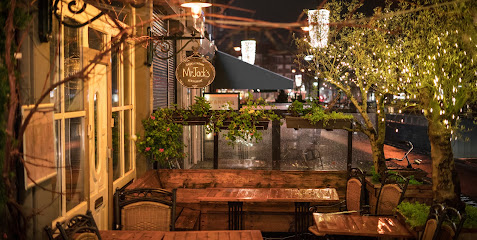
Zappa's Nijmegen
Experience authentic Italian flavors at Zappa's Nijmegen with delicious pasta, pizza, and more in a cozy setting.
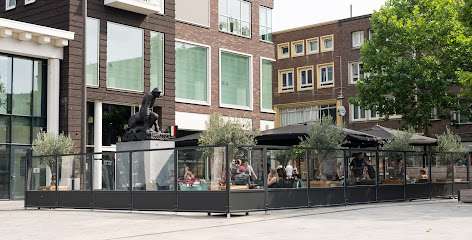
De Dromaai
Experience the best of Dutch cuisine at De Dromaai in Nijmegen – where fresh ingredients meet warm hospitality.
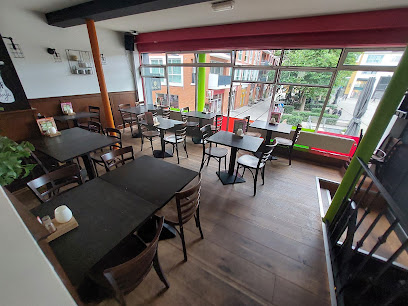
Brasserie ’t Zotte Lemke
Experience authentic Dutch cuisine at Brasserie ’t Zotte Lemke in Nijmegen – where flavors meet hospitality in a cozy setting.
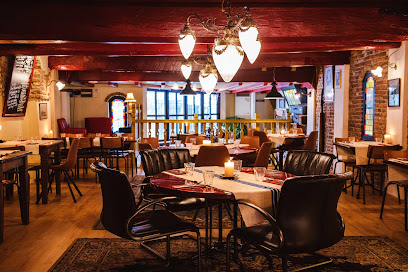
Humphrey's
Discover the culinary charm of Nijmegen at Humphrey's – where exceptional food meets inviting ambiance.
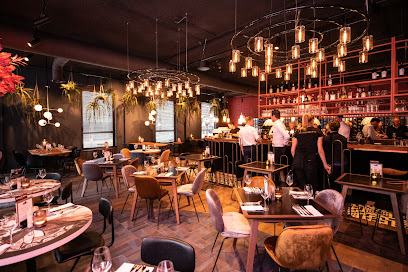
In de Kazerne
Discover the flavors of Nijmegen at In de Kazerne – where local ingredients meet global culinary artistry.
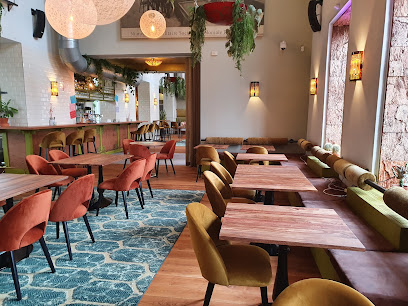
De Waagh
Experience delightful Dutch cuisine at De Waagh, where history meets modern dining in the heart of Nijmegen's vibrant Grote Markt.
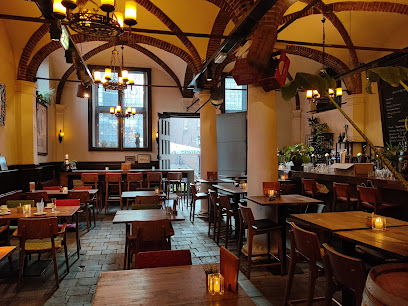
Nibbles
Discover Nibbles in Nijmegen: where delicious local and international dishes come together in a cozy atmosphere.
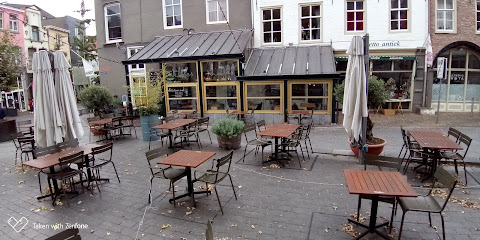
Café De Plak
Discover Café De Plak in Nijmegen - where delicious local cuisine meets warm Dutch hospitality in a cozy setting.
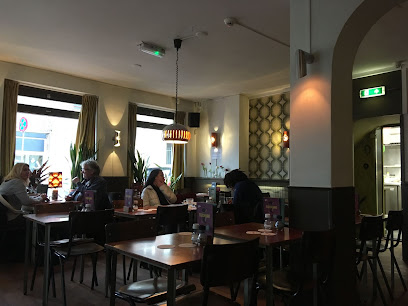
Flores
Discover exquisite flavors at Bistro Flores in Nijmegen - where culinary artistry meets warm hospitality.
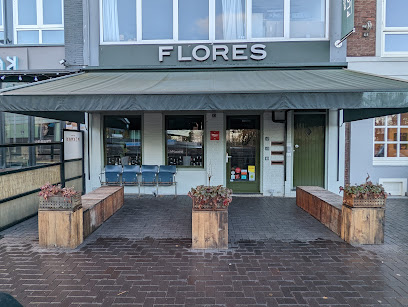
Bistrobar Berlin
Experience the vibrant flavors of Nijmegen at Bistrobar Berlin, where delightful small plates meet an inviting atmosphere.
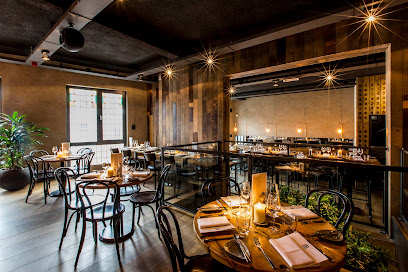
Markets, malls and hidden boutiques
Winkelcentrum Dukenburg
Discover a vibrant shopping experience at Winkelcentrum Dukenburg, where the best of local and international retail awaits you in Nijmegen.
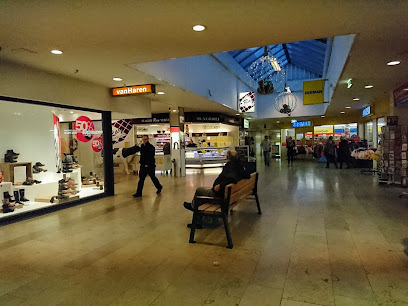
Molenpoort Nijmegen
Discover Molenpoort Nijmegen, a premier shopping mall offering diverse retail, dining, and entertainment options in the heart of Nijmegen.
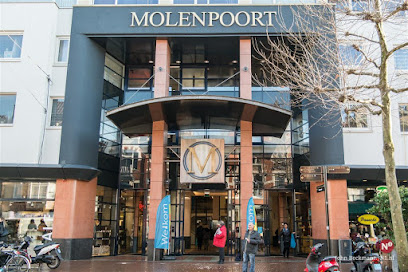
'T Kunsje
Explore the vibrant cannabis culture at 'T Kunsje, a unique lounge in Nijmegen offering a cozy atmosphere, quality products, and community events.
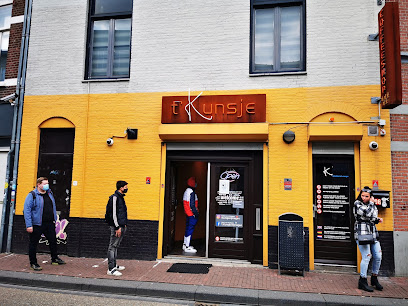
Coffeeshop Kronkel
Discover Coffeeshop Kronkel in Nijmegen, where cannabis culture meets delicious diner fare in a cozy atmosphere.
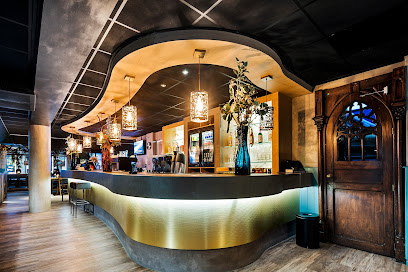
Coolblue Nijmegen
Explore the ultimate electronics shopping experience at Coolblue Nijmegen, where technology meets exceptional customer service.
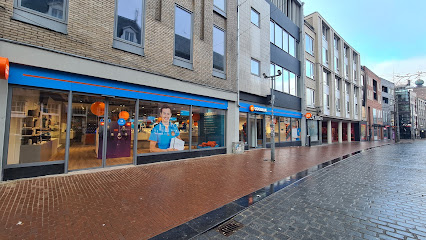
Coffeeshop Dreadlock
Discover Coffeeshop Dreadlock in Nijmegen, where quality cannabis meets a vibrant atmosphere, perfect for enthusiasts and curious visitors alike.
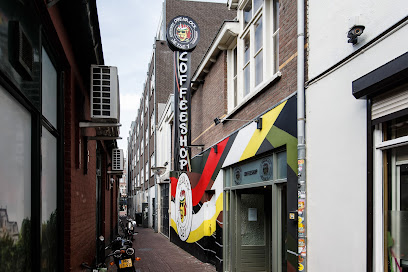
Dille & Kamille - Nijmegen
Explore Dille & Kamille, Nijmegen's enchanting gift shop, featuring home goods, kitchen supplies, and unique Dutch souvenirs.
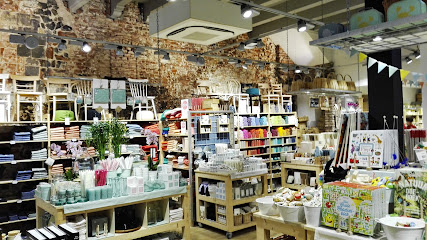
SoLow
Discover unique gifts and crafts at SoLow, Nijmegen's charming gift shop offering a variety of delightful treasures for every occasion.
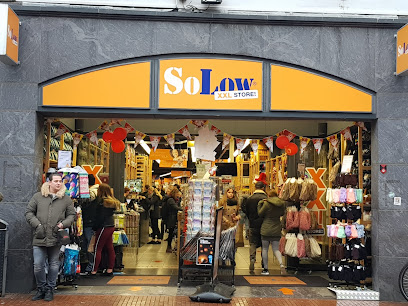
Thrift store Het Goed Nijmegen
Explore the charm of second-hand shopping at Het Goed Thrift Store in Nijmegen, where every item has a story and sustainability is key.
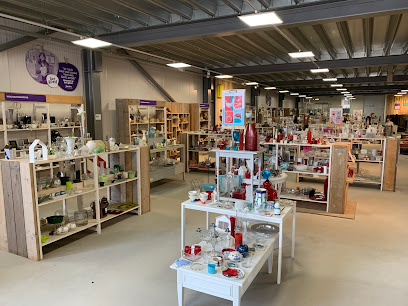
the Museumwinkel.com
Discover unique gifts and captivating taxidermy at Museumwinkel.com, Nijmegen's charming shop for one-of-a-kind treasures.
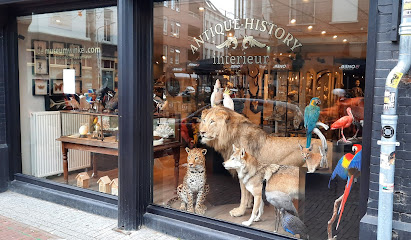
Flying Tiger Copenhagen
Explore the whimsical world of Flying Tiger Copenhagen, where affordable creativity meets unique gifts for every occasion in the heart of Nijmegen.
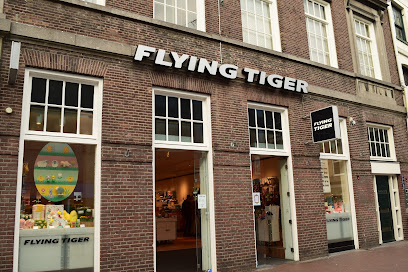
Dakota
Discover the essence of Dutch cannabis culture at Dakota in Nijmegen, where quality products meet a welcoming atmosphere and knowledgeable staff.
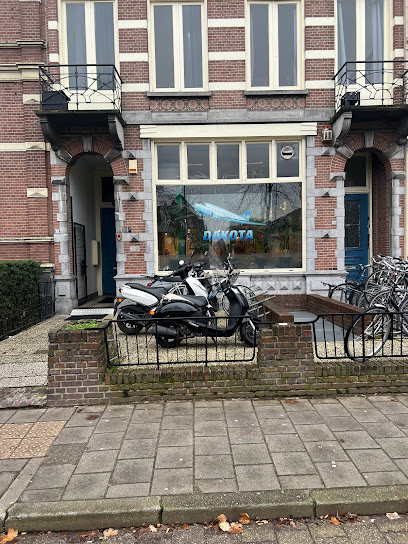
Action
Explore Action in Nijmegen for a unique shopping experience with diverse products, from DIY supplies to home goods, all at affordable prices.
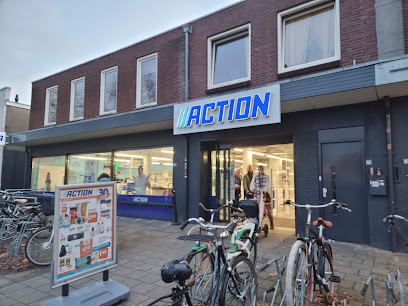
Waaghals
Explore Waaghals: A Record Store in Nijmegen where Music Lovers Discover Vinyl Treasures and Local Culture.
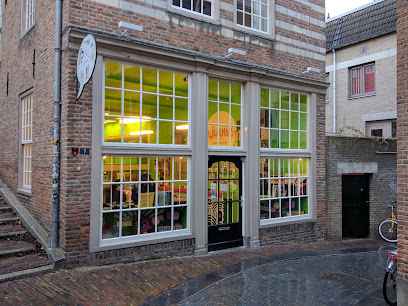
Xenos Nijmegen Molenpoort
Explore Xenos Nijmegen Molenpoort, your go-to gift shop for unique home goods, decor, and hobby supplies in the heart of Nijmegen.
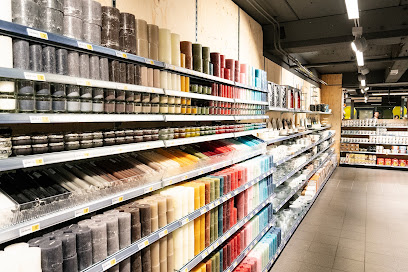
Essential bars & hidden hideouts
The Shamrock Irish Pub
Immerse yourself in the authentic Irish experience at The Shamrock Irish Pub, where good food, great drinks, and lively entertainment await.
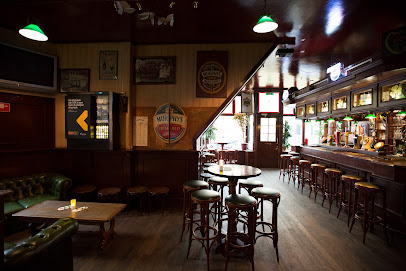
In de Blaauwe Hand
Discover In de Blaauwe Hand: A cozy bar and café in Nijmegen, perfect for drinks, snacks, and local culture.
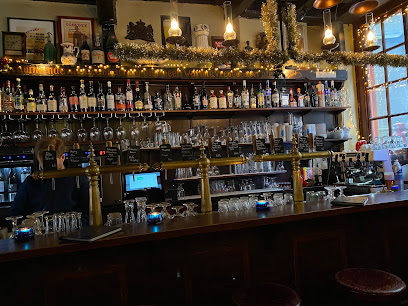
Café Opera
Discover the vibrant atmosphere and diverse menu of Café Opera, Nijmegen’s must-visit pub and café, perfect for any culinary adventure.
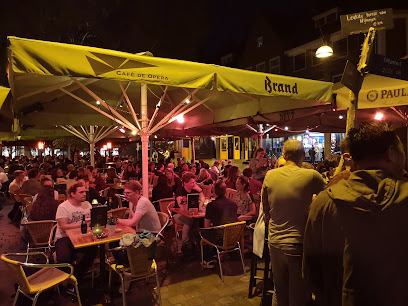
Café Wunderkammer
Experience the cozy charm of Café Wunderkammer, a delightful pub and café in Nijmegen, known for its eclectic atmosphere and delicious offerings.
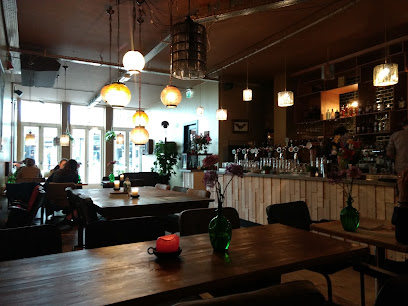
Café Sjors & Sjimmie Nijmegen
Discover Café Sjors & Sjimmie in Nijmegen: a lively café that morphs into a dance club, offering great food, drinks, and unforgettable nightlife.
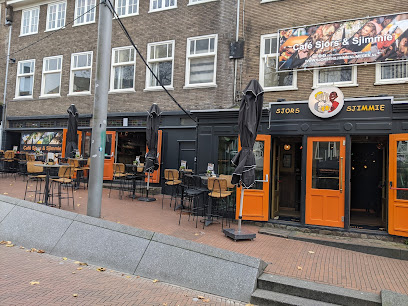
Café van Ouds Nijmegen
Discover the charming Café van Ouds in Nijmegen, a cozy bar and café with an extensive selection of unique beers and a welcoming atmosphere.
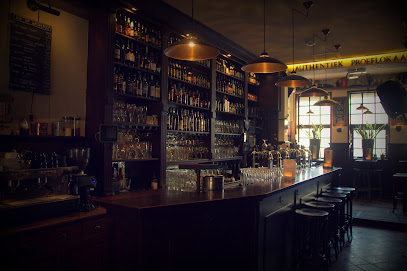
Tierney's Irish Pub & Restaurant
Discover the authentic flavors of Ireland at Tierney's Irish Pub & Restaurant in Nijmegen, where great food, drinks, and live music create unforgettable experiences.
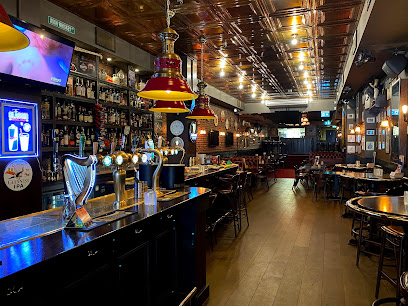
Wijnbar Lebowski
Discover the charm of Wijnbar Lebowski, where exquisite wines and delightful bites blend in a cozy atmosphere in the heart of Nijmegen.
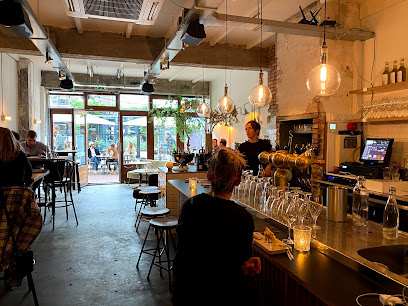
BoulesBitesBar Nijmegen
BoulesBitesBar in Nijmegen: A lively bar and grill perfect for family fun and delicious dining experiences.
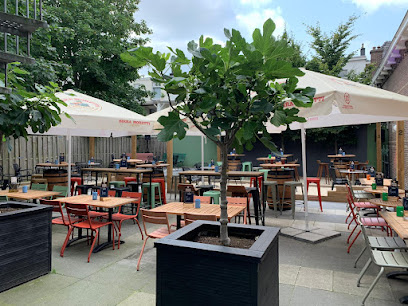
bar Ruygh
Experience the vibrant nightlife of Nijmegen at Bar Ruygh, where the atmosphere is electric and the drinks are always flowing.
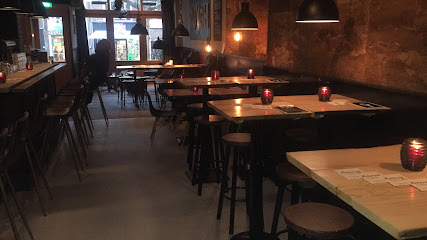
PAAK Vinyl Bar
Discover the rhythm of Nijmegen at PAAK Vinyl Bar, where music meets culinary delights in a cozy atmosphere.
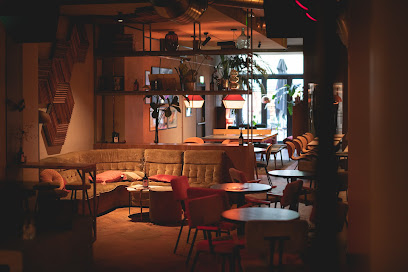
atelier. BAR ALL DAY
Discover the vibrant flavors of Nijmegen at Atelier BAR ALL DAY, your go-to spot for breakfast, lunch, cocktails, and unforgettable dining experiences.
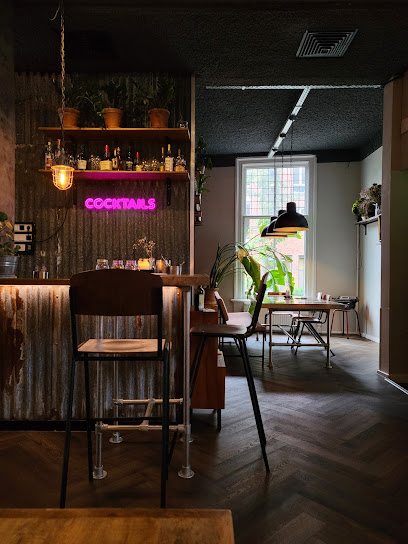
BAR 2
Discover the lively nightlife at BAR 2 in Nijmegen, where great drinks and a vibrant atmosphere await.
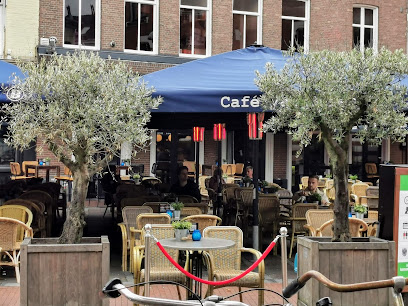
Selbachs
Discover the lively atmosphere of Selbachs, a beloved pub in Nijmegen, offering a wide range of drinks and local charm.
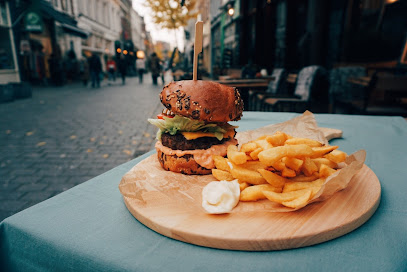
Local Phrases
-
- HelloHallo
[hah-loh] - GoodbyeTot ziens
[tot zeens] - YesJa
[yah] - NoNee
[nay] - Please/You're welcomeAlsjeblieft
[ahls-yuh-bleeft] - Thank youDank je wel
[dahnk yuh vel] - Excuse me/SorrySorry
[soh-ree] - How are you?Hoe gaat het?
[hoo gah-t het] - Fine. And you?Goed. En met jou?
[khoot. en met yow] - Do you speak English?Spreek je Engels?
[sprayk yuh eng-els] - I don't understandIk begrijp het niet
[ik buh-grayp het neet]
- HelloHallo
-
- I'd like to see the menu, pleaseIk zou graag de menukaart willen zien, alstublieft
[ik zow khrahg duh men-yoo-kahrt vil-len zeen, ahl-stu-bleeft] - I don't eat meatIk eet geen vlees
[ik ayt khayn vleys] - Cheers!Proost!
[prohst] - I would like to pay, pleaseIk zou graag willen betalen, alstublieft
[ik zow khrahg vil-len buh-tah-len, ahl-stu-bleeft]
- I'd like to see the menu, pleaseIk zou graag de menukaart willen zien, alstublieft
-
- Help!Help!
[help] - Go away!Ga weg!
[gah vehkh] - Call the Police!Bel de politie!
[bel duh poh-lee-see] - Call a doctor!Bel een dokter!
[bel ayn dohk-ter] - I'm lostIk ben verdwaald
[ik ben fer-dwahld] - I'm illIk ben ziek
[ik ben zik]
- Help!Help!
-
- I'd like to buy...Ik zou graag willen kopen...
[ik zow khrahg vil-len koh-pen] - I'm just lookingIk kijk alleen maar
[ik kayk a-leen mahr] - How much is it?Hoeveel kost het?
[hoo-vel kost het] - That's too expensiveDat is te duur
[dat is tuh dur] - Can you lower the price?Kunt u de prijs verlagen?
[kunt oo duh prays fur-lah-ghen]
- I'd like to buy...Ik zou graag willen kopen...
-
- What time is it?Hoe laat is het?
[hoo laht is het] - It's one o'clockHet is een uur
[het is ayn oor] - Half past (10)Half elf
[hahlf elf] - MorningOchtend
[okh-tend] - AfternoonMiddag
[mid-dahkh] - EveningAvond
[ah-vohnd] - YesterdayGisteren
[khis-teh-run] - TodayVandaag
[vahn-dahkh] - TomorrowMorgen
[mor-khun] - 1Een
[ayn] - 2Twee
[tway] - 3Drie
[dree] - 4Vier
[feer] - 5Vijf
[fayf] - 6Zes
[zehs] - 7Zeven
[zay-ven] - 8Acht
[ahkht] - 9Negen
[nay-khen] - 10Tien
[teen]
- What time is it?Hoe laat is het?
-
- Where's a/the...?Waar is een/de...?
[var is ayn/deh] - What's the address?Wat is het adres?
[vaht is het ah-dres] - Can you show me (on the map)?Kunt u het me laten zien (op de kaart)?
[kunt oo het me lah-ten zeen (op duh kahrt)] - When's the next (bus)?Wanneer is de volgende (bus)?
[ven-er is duh vol-hen-duh (bus)] - A ticket (to ....)Een kaartje (naar ....)
[ayn kahrt-yuh (nar)]
- Where's a/the...?Waar is een/de...?
History of Nijmegen
-
The history of Nijmegen dates back to Roman times when it was known as Noviomagus. Established around 19 BC, it became one of the key settlements in the Roman province of Germania Inferior. The strategic location along the Waal River made it an essential military and trade hub. Remnants of Roman architecture, such as the Valkhof Museum's collection of artifacts, still reflect this ancient heritage.
-
During the Middle Ages, Nijmegen evolved into an important city within the Holy Roman Empire. In the 12th century, it was granted city rights, contributing to its rapid growth and prosperity. The St. Stevenskerk, built in the 13th century, stands as a testament to the city's medieval significance. The annual Four Days Marches also trace their roots back to this era, reflecting the city's long-standing cultural traditions.
-
Nijmegen was a member of the Hanseatic League, a powerful economic and defensive alliance of merchant guilds and market towns in Northwestern and Central Europe. This membership, from the 14th to the 16th century, bolstered its trade connections, especially in textiles and wine. The city's involvement in the League played a crucial role in its economic development and international relations during the late Middle Ages.
-
Nijmegen faced significant challenges during the Eighty Years' War (1568–1648), a revolt of the Seventeen Provinces against the Spanish Empire. The city was strategically important and changed hands multiple times between the Dutch rebels and the Spanish forces. The Treaty of Nijmegen, signed in 1678-1679, ended several concurrent wars involving France, Spain, and the Dutch Republic, underscoring the city's diplomatic importance.
-
Nijmegen endured severe hardship during World War II. The city was heavily bombed in February 1944, resulting in significant destruction and loss of life. Later that year, it became a key battleground during Operation Market Garden, an Allied military operation aimed at securing key bridges. The Waal Bridge played a crucial role in the Allies' efforts to liberate the Netherlands from Nazi occupation. Post-war, Nijmegen rebuilt itself, preserving its rich history while modernizing its infrastructure.
-
Today, Nijmegen is a vibrant cultural center, home to Radboud University and numerous festivals, including the International Four Days Marches, which attract participants from around the world. The city's diverse cultural scene is celebrated through its museums, theaters, and historical sites. The rich blend of ancient and contemporary culture makes Nijmegen a fascinating destination for history enthusiasts and travelers alike.
Nijmegen Essentials
-
Nijmegen is well-connected and easily accessible. The nearest international airport is Amsterdam Schiphol Airport, approximately 120 kilometers away. From the airport, you can take a direct train to Nijmegen, which takes around 1.5 hours. Alternatively, you can fly into Eindhoven Airport, which is about 70 kilometers away, and take a train or bus to Nijmegen. If traveling by train within Europe, Nijmegen has direct connections to major cities like Amsterdam, Utrecht, and Arnhem.
-
Nijmegen boasts an efficient public transportation system. The city's bus network is extensive, operated by Breng, with buses running frequently. You can purchase an OV-chipkaart, a rechargeable travel card, for easy access to all public transport. Biking is also a popular mode of transport, with designated bike lanes throughout the city. For those who prefer taxis, they are readily available and can be booked via apps like Uber or through local services.
-
The official currency in the Netherlands is the Euro (EUR). Credit and debit cards are widely accepted in most establishments, including restaurants, shops, and hotels. Contactless payments are common, and ATMs are plentiful for cash withdrawals. It's advisable to carry some cash, especially for smaller transactions or in more local venues.
-
Nijmegen is generally considered a safe city for tourists. However, like any urban area, it's wise to take standard precautions. Avoid poorly lit areas at night and remain vigilant of your belongings in crowded places. While there are no specific high-crime areas targeting tourists, the city center can get busy, so keep an eye on personal items to avoid pickpocketing.
-
In case of emergency, dial 112 for immediate assistance. This number connects you to police, fire, and medical services. Nijmegen has several hospitals and clinics that provide excellent medical care. It is recommended to have travel insurance that covers medical emergencies. Pharmacies are available throughout the city for minor health issues and over-the-counter medications.
-
Fashion: Do dress comfortably and stylishly; casual attire is common. Avoid overly revealing clothing, especially in religious sites. Religion: Do respect local customs and be quiet in religious places. Public Transport: Do be punctual and validate your ticket. Don't talk loudly or disturb others. Greetings: Do greet people with a handshake. A friendly smile goes a long way. Eating & Drinking: Do try local dishes and be polite when dining. Don't leave without trying the local specialty, 'Hete Bliksem'.
-
To experience Nijmegen like a local, rent a bike and explore the city's many parks and the beautiful Ooijpolder nature reserve. Visit the weekly farmers' market at the Grote Markt for fresh produce and local treats. Engage with locals at cafes and bars; Nijmegen is known for its friendly and open residents. Don't miss the opportunity to attend one of the city's many festivals, such as the Four Days Marches (Vierdaagsefeesten), which is a highlight of the year.
Nearby Cities to Nijmegen
-
Things To Do in Arnhem
-
Things To Do in Amersfoort
-
Things To Do in Eindhoven
-
Things To Do in Utrecht
-
Things To Do in Zwolle
-
Things To Do in Amsterdam
-
Things To Do in Essen
-
Things To Do in Dusseldorf
-
Things To Do in Rotterdam
-
Things To Do in Genk
-
Things To Do in Leiden
-
Things To Do in Haarlem
-
Things To Do in Maastricht
-
Things To Do in Delft
-
Things To Do in Hasselt












